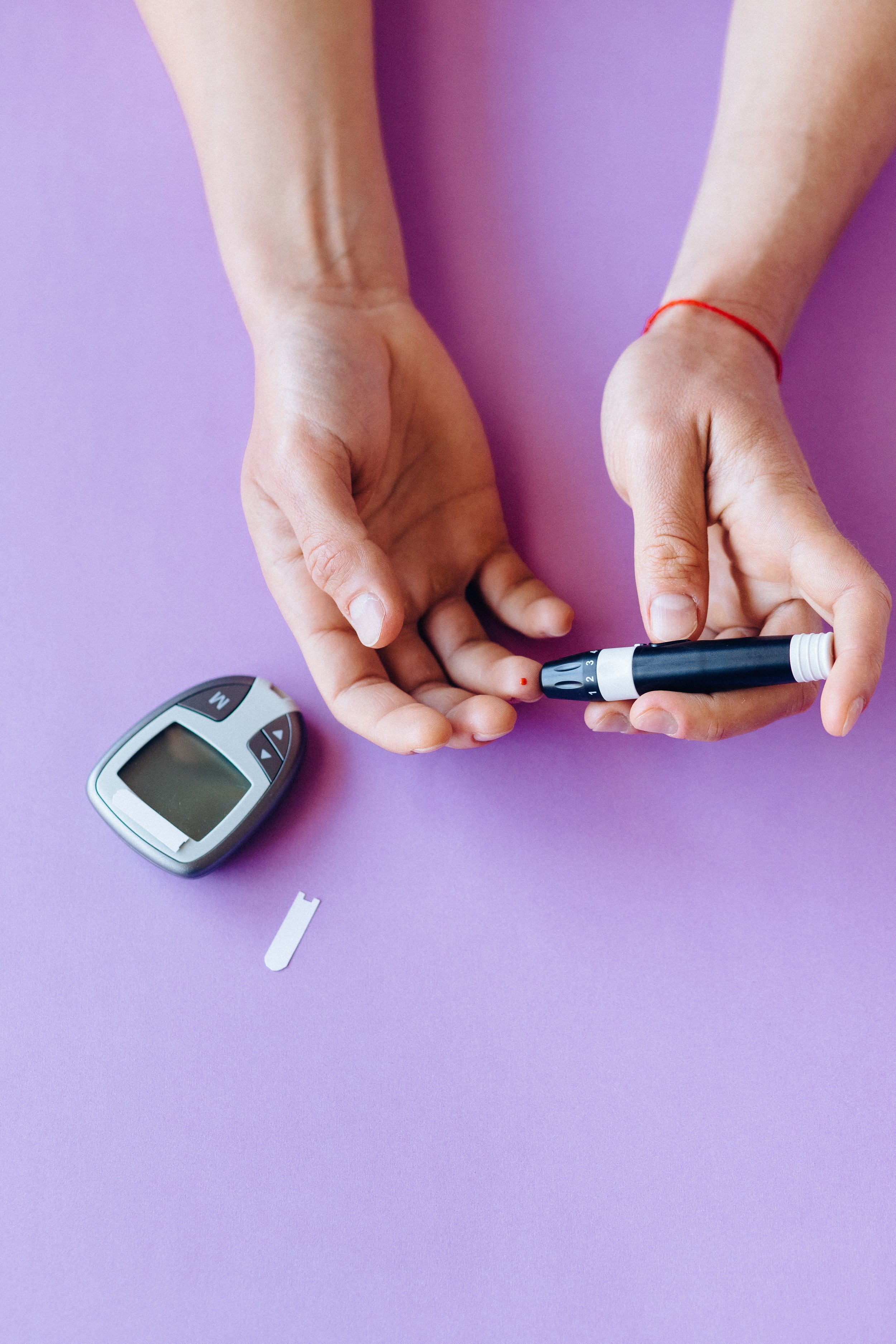Patient Education
Quick links:


Baqsimi for Hypoglycemia
A new glucagon medication is available on the market called Baqsimi. It is not injectable, but is Inhaled as a puff of powder in the nose. BAQSIMI comes in a single dose that is the same for people age 4 years and older.

How to adjust the basal insulin dose based on fasting glucose levels
Adjusting the basal or long-acting insulin dose based on fasting glucose levels (on awakening before you consume food or sugar containing beverages) can be an important aspect of diabetes management for people who use insulin therapy.

Using a continuous 24 hour glucose sensor
Using a continuous 24-hour glucose sensor is a valuable tool for people with diabetes who want to closely monitor their blood sugar levels.

Obtaining a fingerstick blood glucose level
Measuring your blood glucose level using the finger-stick method, also known as self-monitoring of blood glucose (SMBG), is a simple and effective way to track your blood sugar levels.

How to give an insulin injection using a vial and syringe
Administering an injection of insulin using a vial of insulin and a syringe can be a daunting task for some, but with proper technique and practice, it can become routine. It is important to note that this answer is intended as a general guide and you should always follow your healthcare provider's instructions for administering insulin.

Hypoglycemia
Hypoglycemia, also known as low blood sugar, occurs when levels of glucose (sugar) in the blood are too low. Hypoglycemia is common in people with diabetes who take insulin and some (but not all) oral diabetes medications.

Say Hello to the Amazing New Dexcom G7
The all-new Dexcom G7 Continuous Glucose Monitoring (CGM) system is our smallest, most accurate, and easiest to use5 CGM. The low-profile, wearable sensor completes warmup faster than any CGM system and provides real-time glucose data to your smart device, no fingersticks required.


Thyroid Nodules and Other Disorders
Thyroid nodules are growths or lumps that develop within the thyroid gland, which is a butterfly-shaped gland located in the neck that produces hormones that regulate metabolism. Most thyroid nodules are benign (non-cancerous), but some can be cancerous.
The relationship between thyroid nodules and cancer is that about 5% of thyroid nodules are malignant, meaning they are cancerous. Thyroid cancer is a relatively rare type of cancer, but it is important to have thyroid nodules evaluated by a doctor to determine if they are cancerous or not.

Pituitary Diseases
The pituitary gland is a small endocrine gland located at the base of the brain that produces several hormones that regulate various bodily functions. Pituitary diseases are disorders that affect the function of the pituitary gland and can result in an overproduction or underproduction of hormones.

Osteoporosis
Osteoporosis is a condition in which the bones become weak and brittle, increasing the risk of fractures (breaks) in the bones. It is often referred to as a "silent disease" because it develops slowly over time without any symptoms.

Calcium Disorders
Calcium is an essential mineral that plays a vital role in many bodily functions, such as muscle and nerve function, blood clotting, and maintaining healthy bones. Calcium disorders refer to any condition that affects the normal levels of calcium in the body.

Adrenal Disorders
The adrenal glands are small glands located on top of each kidney that produce hormones such as cortisol and adrenaline. Adrenal disorders refer to any condition that affects the normal function of the adrenal glands.

Diabetes Mellitus
Diabetes mellitus is a chronic condition characterized by high levels of sugar (glucose) in the blood. There are two main types of diabetes: type 1 and type 2.
